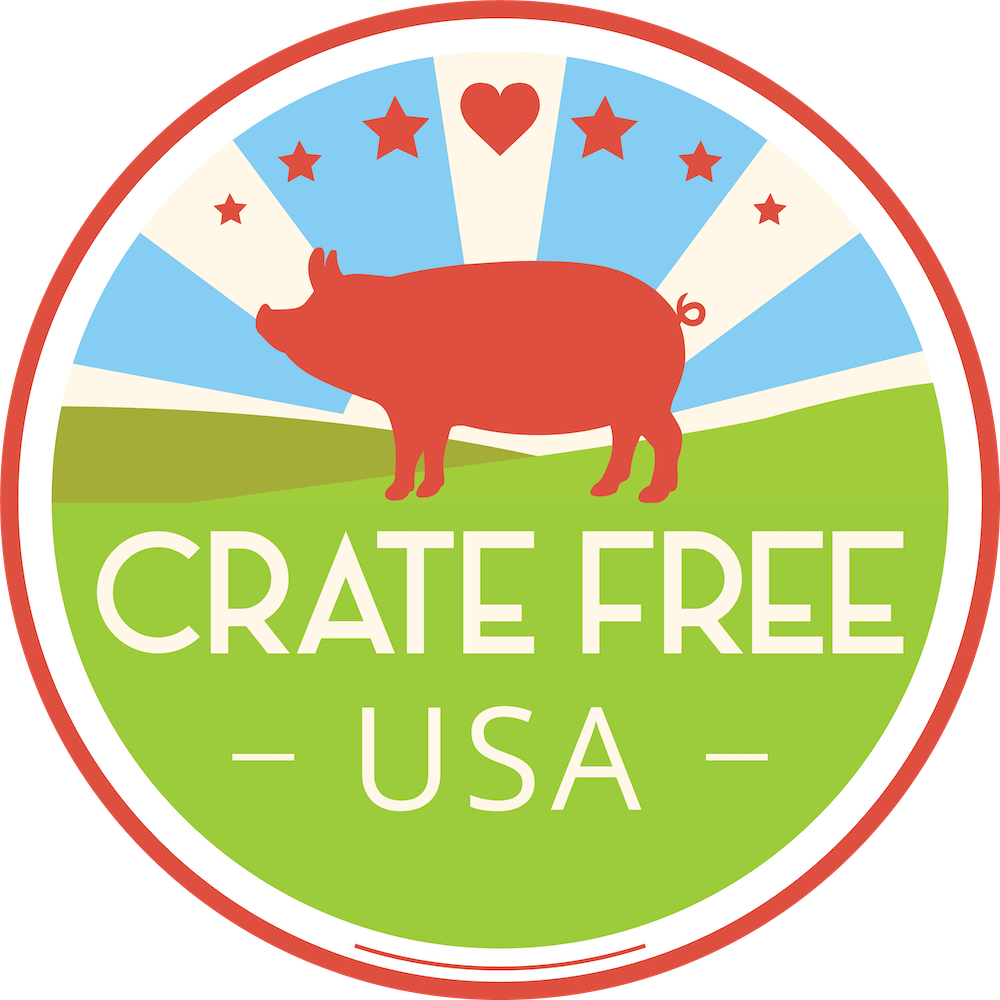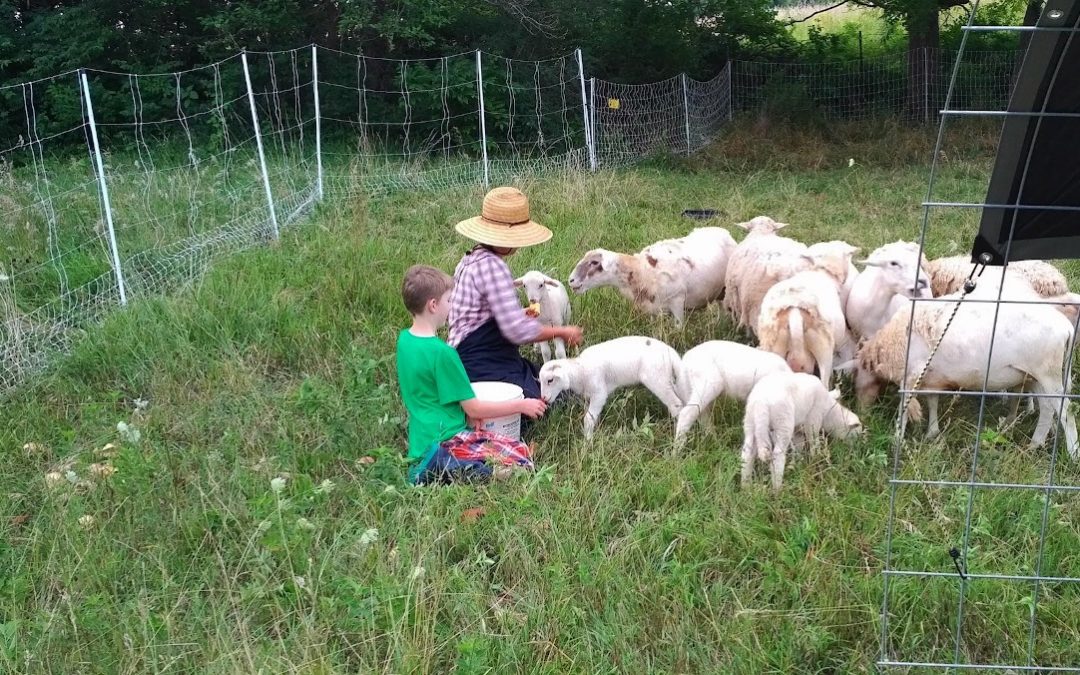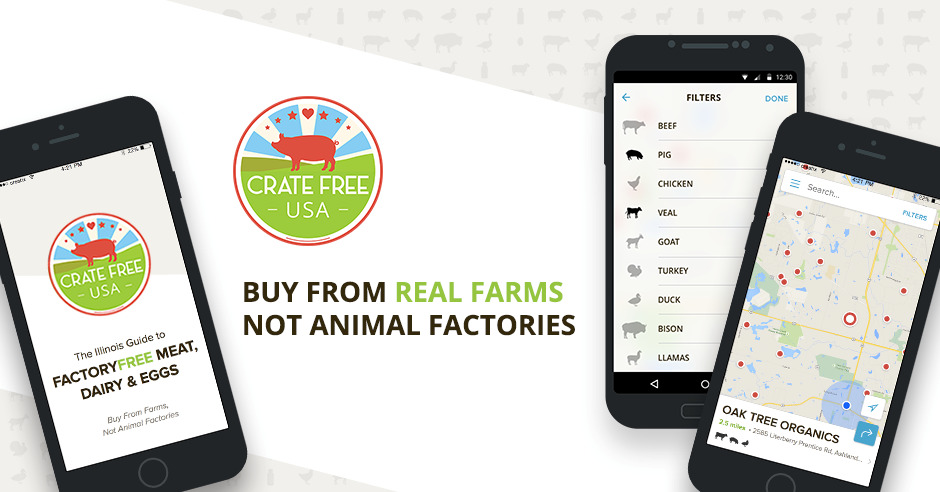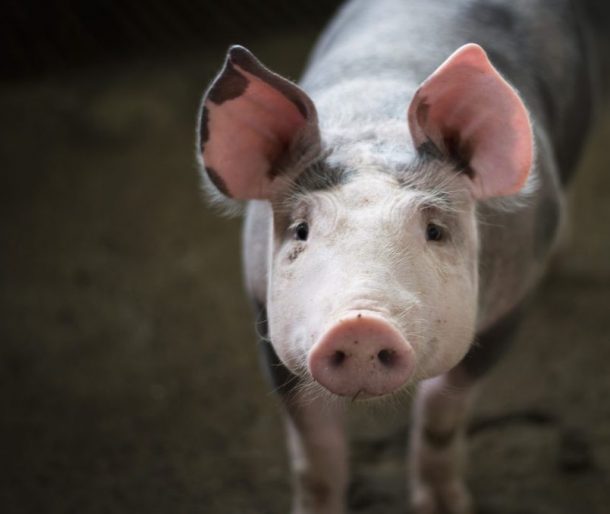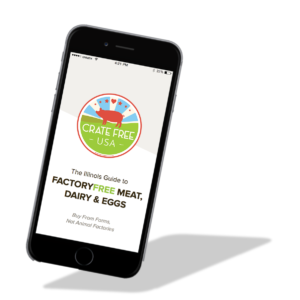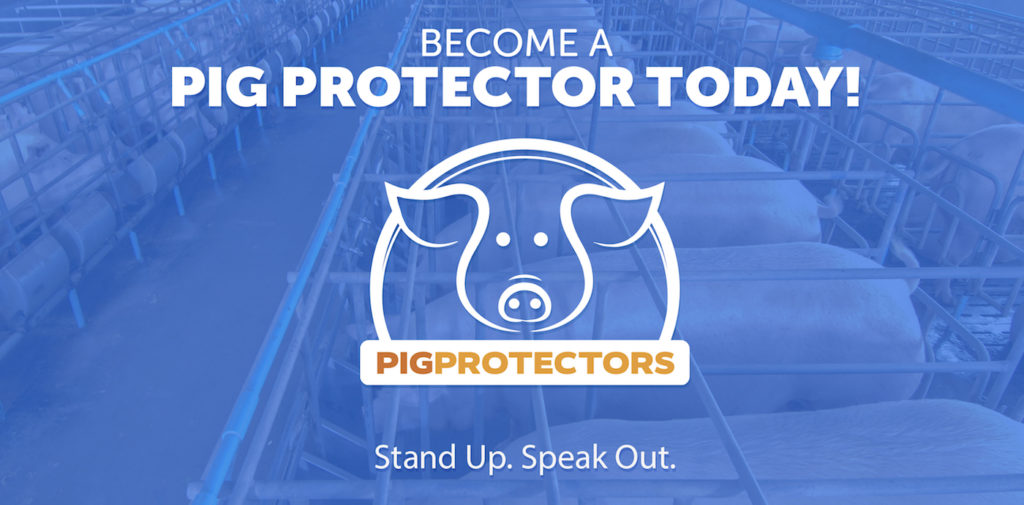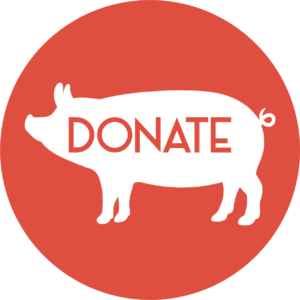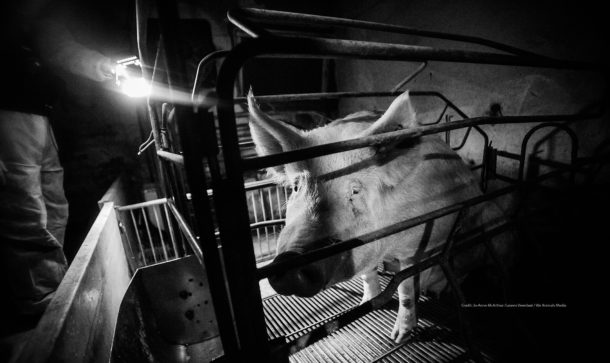At Crate Free USA, our mission is to improve the lives of animals raised for food. And since the vast majority of Americans still eat meat, the best way to do this is to shop from local farmers who care about the animals they raise far more than the huge factory farms and corporations who own so much of the food industry today. While we do promote a reduction of meat in your diet, we also support our local farmers who raise animals more humanely and sustainably.
It’s easy for you to find a local, sustainable farmer near you. Just download our free mobile app!
This month we’re getting to know Annie and Matt from Shire Regenerative Farm located in the Quad Cities area of Illinois. They say that their farming practices go beyond humane to happy, beyond conservation and beyond sustainable to regenerative.
According to their website, regenerative is a broad term for agricultural practices that go beyond sustainability (sustain what we have now), intending to continuously improve the health of the whole system, including soil, plants, animals, and people.
Their overall philosophy is summed up in their tagline:
Happy soil, happy plants, happy animals, healthy food.
Tell us about your farm?
Shire Regenerative Farm is a small family farm in western Illinois (& looking to grow). We use high-nutrition methods to grow high-nutrition food, including diverse varieties and breeds of high-phytonutrient vegetables, fruits, nuts, herbs, flowers, highly pastured chicken eggs & meat, duck eggs & meat, and savanna-pastured lamb.
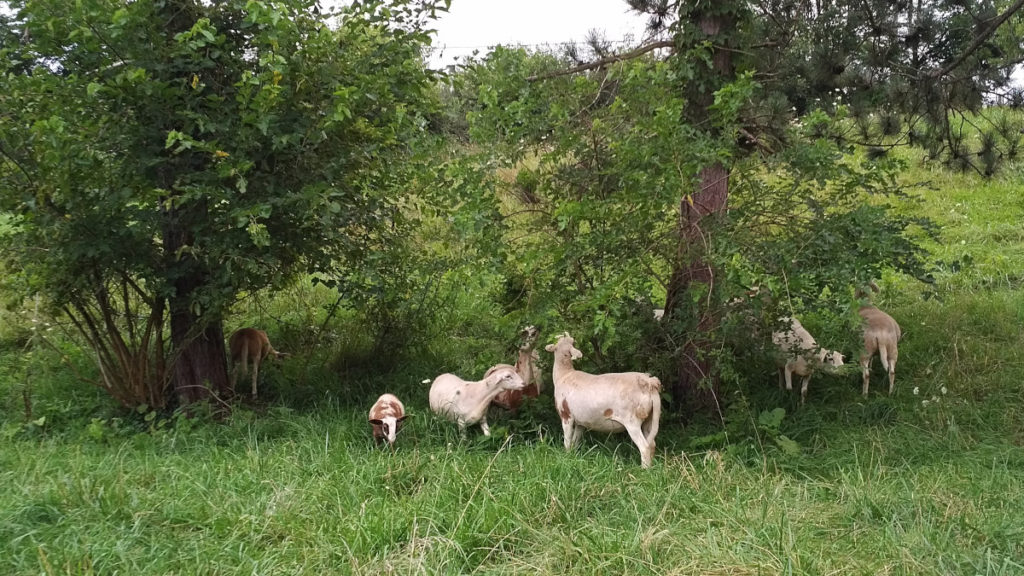
Sheep on pasture at Shire Regenerative Farm
How did you first become involved in farming?
Back in 2011 we were trying to improve our health and food, and read a book titled “You Can Farm,” which seemed funny at the time, but not now – it was right.
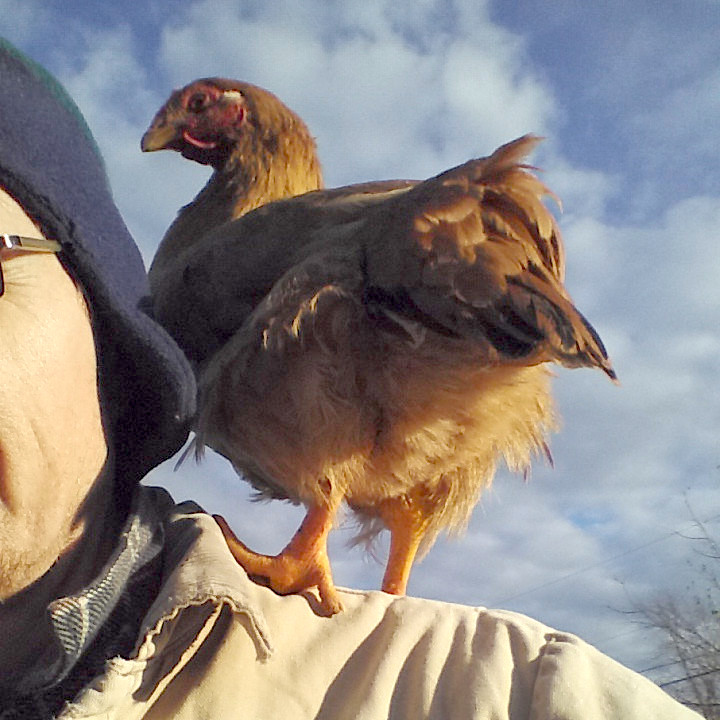
This happy chicken flew onto Matt’s shoulder voluntarily!
Why is farming sustainably and humanely important to you?
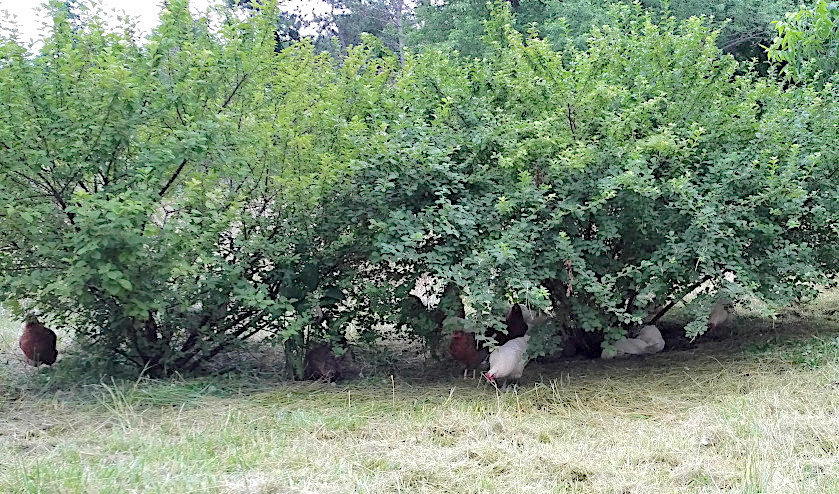
Chickens under the cherry trees at Shire Regenerative Farm
How have the economics of farming changed in the last several years and how has it affected you? What further changes are you anticipating?
What are your views on extreme confinement and gestation crates for pigs?
The book “The Marvelous Pigness of Pigs” states it well:
“Our culture doesn’t ask about preserving the essence of pig; it just asks how can we grow them faster, fatter, bigger, and cheaper. We know that’s not a noble goal.”
“Respecting and honoring the pigness of the pig is a foundation for societal health.”
Would you support a bill to end extreme confinement? Why or why not?
Based on meat’s levels of cortisol, omega-3s, phytonutrients, and many others, extreme confinement of animals is not good for human health, so we should demand better even if that was our only reason. For example, “Health-Promoting Phytonutrients Are Higher in Grass-Fed Meat and Milk”, according to the research of Dr. Stephan van Vliet et al.
What can consumers do to help improve the lives of all our farm animals?
How do you market and sell your products? How can people shop with you/find you? Can they visit the farm?
